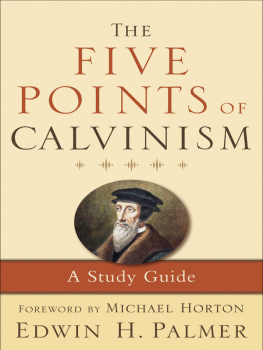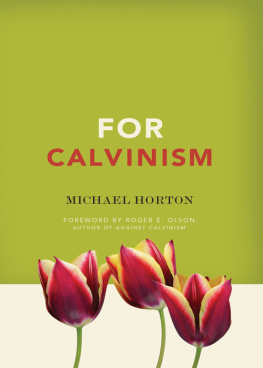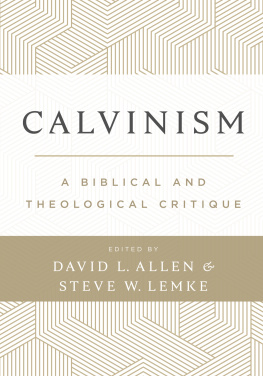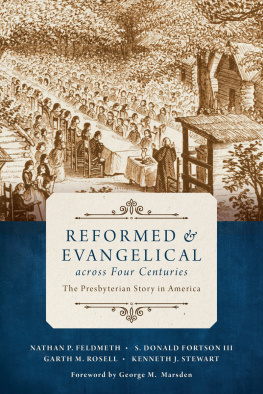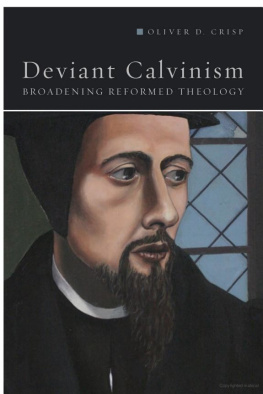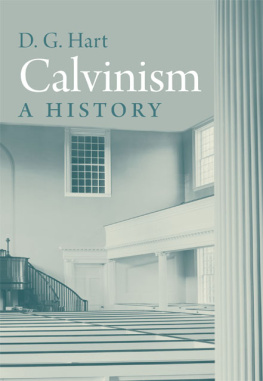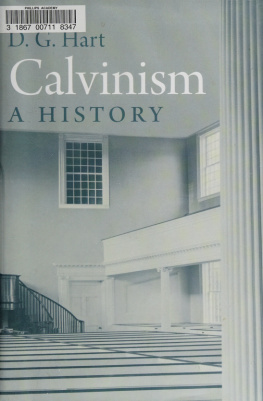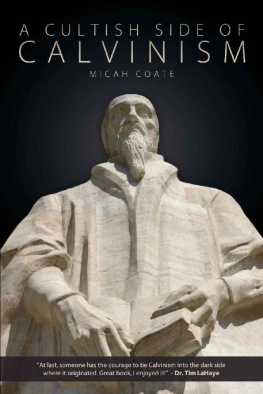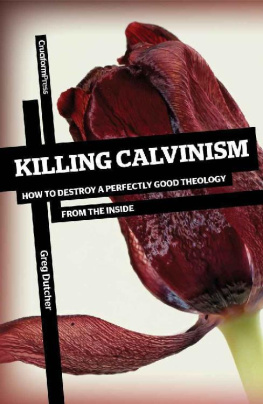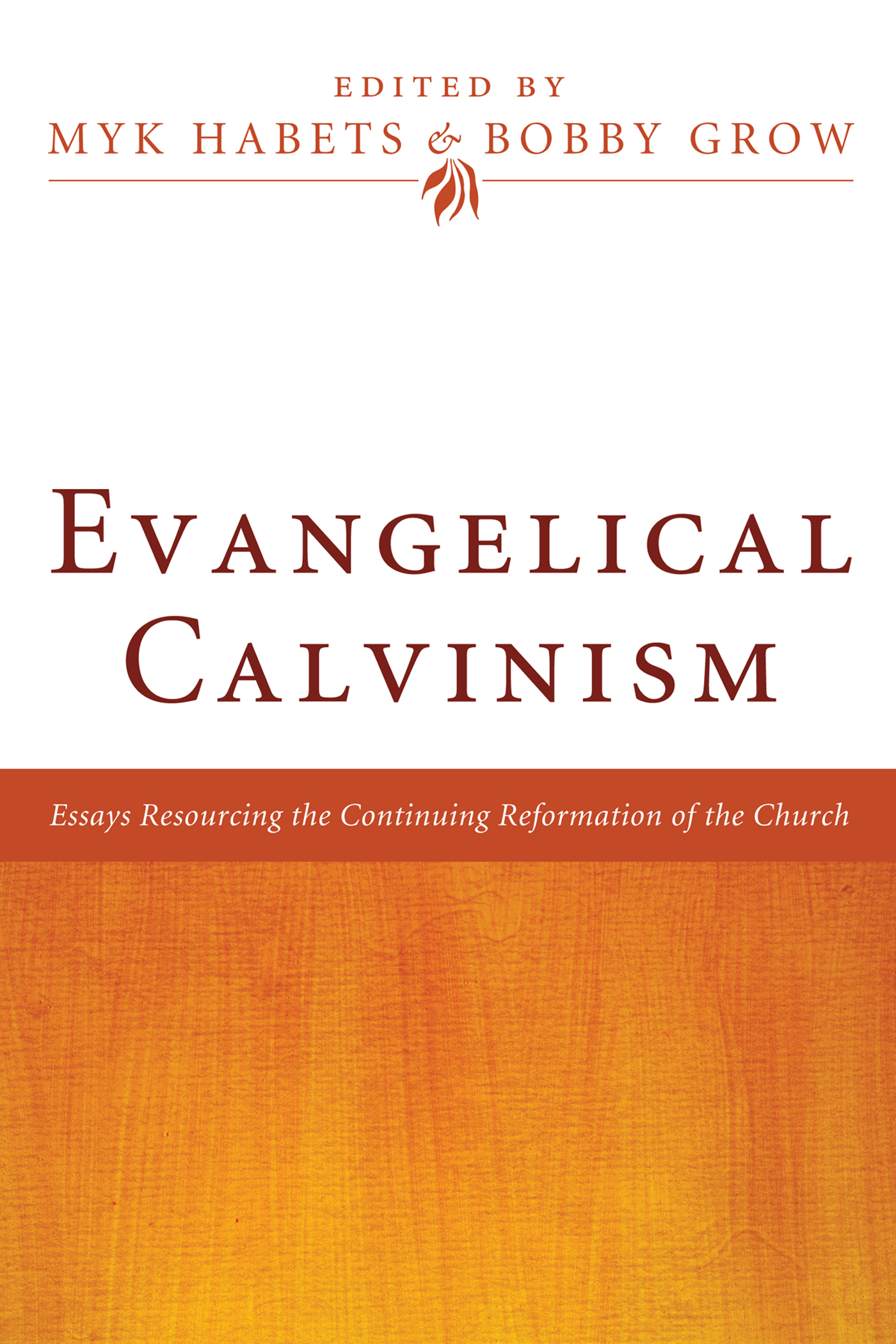Introduction
Theologia Reformata et Semper Reformanda
Towards an Evangelical Calvinism
Myk Habets and Bobby Grow
Evangelical Calvinism
T he Quincentenary of Calvins birth in 2009 provided an opportunity for Calvinists around the world to celebrate his life, thought, and influence. The Calvin 500 Tribute Conference in Geneva, and the many other gatherings of Reformed thinkers around the globe, were occasions for joy and celebration as academic papers were read and expository sermons were preached, all under the banner of Calvinism. In addition to a celebration of the past, the Quincentenary was also an occasion to reconsider the future of Reformed thought: what it may look like, where it may go, and who may lead such a future. As questions such as these were considered it quickly became evident that there were no easy or even obvious answers. Calvinism, in various guises, has a global reach and influence. While there is geographical diversity there is also theological diversity. For the contributors to this book, this is not only to be expected but actually encouraged, for unity in diversity brings with it new perspectives, correctives, and opportunities for enrichment.
The contributors to this volume are Reformed theologians from various denominations who love their theological tradition and are committed to its truths, but understand that their tradition is a variegated one, with many tributaries and eddies. They represent a consistent feature of Reformed theologythe willingness and ability to enrich their tradition by mining its past and contributing to its future. This is not, however, an expression of a new-Calvinism or even a neo-Calvinism, if by those terms are meant a novel reading of the Reformed faith. We, along with the Reformed theologian Donald McKim, consider the Reformed faith an expansive tradition with many threads that make up the fabric of our tradition. McKim captures this well:
The Reformed faith impels persons to confess their faith as part of the ecumenical church, the whole people of God. The movement here is first from what Christians believe to what Reformed Christians believe. Reformed churches are a portion of the full household of faith. As such, Reformed theology and Reformed faith are open to hearing, dialoguing with, and learning from other theological viewpoints and Christian communions. Though some Reformed bodies have tended to become more narrow and almost assume that their formulations are the only means of expressing Gods truth, this impulse runs counter to the genuine heartbeat of Reformed faith. Reformed faith is open to Gods Spirit, who may encounter us at any time in any place. Reformed Christians should see and listen to other voices since perhaps through them an essential theological insight will be given.
Evangelical Calvinism is not a new movement, it does not to belong to any particular denomination, nor is it aligned with any particular seminary; there are no catch words that it sponsors, nor are there any high profile media stars that campaign on its behalf. Evangelical Calvinism as we suggest here, is more of a mood than a movement. The various contributors to the present volume are in their own ways taking steps toward articulating what that mood might look like, and their differences are part of a necessary element in that very mood of witness and argument. In attempting to outline features of an Evangelical Calvinism a number of the contributors compare and contrast this approach with that of Federal Calvinism. This latter form of Calvinism is currently dominant in North American Reformed theology and is considered, by many, to be the only orthodox Reformed theology acceptable; the present volume clearly challenges such assumptions.
In the preface to one of his later works, Scottish Theology from John Knox to John McLeod Campbell, Thomas Torrance set out his understanding of the differences that exist between Classical and Evangelical Calvinism:
Following upon the teaching of the great Reformers there developed what is known as federal theology, in which the place John Calvin gave to the biblical conception of the covenant was radically altered through being schematised to a framework of law and grace governed by a severely contractual notion of covenant, with a stress upon a primitive covenant of works, resulting in a change in the Reformed understanding of covenant of grace. This was what Protestant scholastics called a two-winged, and not a one-winged covenant, which my brother James has called a bilateral and a unilateral conception of the Covenant. The former carries with it legal stipulations which have to be fulfilled in order for it to take effect, while the latter derives from the infinite love of God, and is freely proclaimed to all mankind in the grace of the Lord Jesus Christ. It was the imposition of a rigidly logicalised federal system of thought upon Reformed theology that gave rise to many of the problems which have afflicted Scottish theology, and thereby made central doctrines of predestination, the limited or unlimited range of the atoning death of Christ, the problem of assurance, and the nature of what was called the Gospel-offer to sinners. This meant that relatively little attention after the middle of the seventeenth century was given to the doctrine of the Holy Trinity and to a trinitarian understanding of redemption and worship.
Torrance highlights the development of a tradition of Calvinism that is particular to Scotland but is not unique to the Scots. Elements of what we are calling an Evangelical Calvinism may be found, to a greater or lesser extent, in the theology of such figures as John Calvin, John Knox, aspects of Scottish Reformed theology, among many others, who could be considered its forebears. On the Continent it is, of course, Karl Barth who stands above all others in what we believe approximates an Evangelical Calvinist orientation.
This encapsulates something of the motivation for the present volume. The editors have picked up the baton passed on by Torrance and others in order to offer the family of Reformed theologies a theological and spiritual ethos. In terms of its confessional stance, Evangelical Calvinism follows the trajectory more in line with the Scots Confession (1560) than with the Westminster Confession (1647). It is not that the theology of the two is antithetical, despite there being substantial differences, but more in the tone of the two. In effect, then, Evangelical Calvinism stands in a heritage that provides theological ground to heed Gods call to live out (and out of) the missional-life of Jesus. At its theological core, the approach of the present volume is bound to the Word of God as its compass; and motivated by the grace of the Lord Jesus Christ, the love of the Father, and the communion of the Holy Spirit (2 Cor 13:14), to proclaim Christ to all of humanity for whom he gave his life.
The present volume seeks to model one of the tenets of the Reformed faith, namely, the need for ecclesia reformata, semper reformanda the church reformed and always reforming. While extremely popular within Reformed circles, the origin and context of this phrase are unknown. The phrase itself appears not to have been used prior to the middle of the seventeenth century, and thus it is not a catch cry of the Reformers, as so many mistakenly suggest. In seeking to be faithful to texts such as Romans 12:2, And do not be conformed to this world, but be transformed by the renewing of your mind, that you may prove what is that good and acceptable and perfect will of God, by this phrase is meant the continual humiliation of the Church and its doctors, under the Word of God written, in order to provide faithful service to the Church. It is not that a reformation like that of the fifteenth century is envisaged within Reformed theology today, nor that Reformed theology is inherently wrong and needs a great reformation. It is, rather, the contention that all human systems and articulations of theology are, outside of Jesus Christ himself, provisional and fallible. Karl Barth has rightly said:


